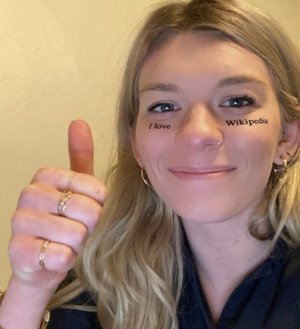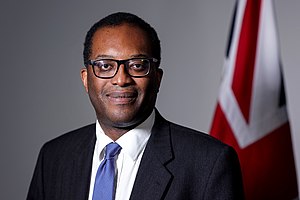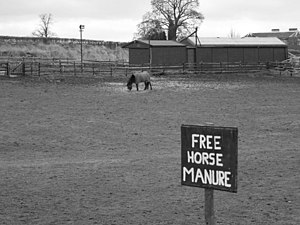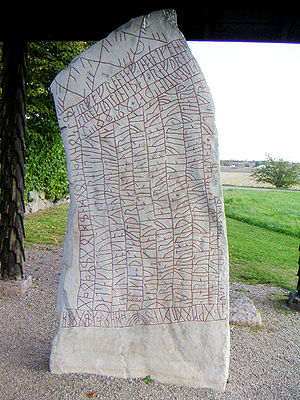Wikipedia:Wikipedia Signpost/2022-08-31/In the media
Truth or consequences? A tough month for truth
Rauwerda named "Media Contributor of the Year"
Annie Rauwerda, who is best known for her Instagram account depths of Wikipedia, was named "Media Contributor of the Year" as part of the Wikipedians of the year awards at this year's Wikimania and by Diff. She has also been named five times in this column for her work and for the extensive news coverage of her work by National Public Radio, The New Yorker, The New York Times and many others – including this ABC News Nightline report today. We heartily concur with the award and send our congratulations. – S
Wikipedia biography allegedly used for fraud
The Buffalo News reports that the Wikipedia biography of Darin Pastor was allegedly used by Pastor and a partner, Halford W. Johnson, as part of a scheme to defraud nearly 100 investors.
Their audacious lies, according to prosecutors, stretched around the world, from a purported deal to buy livestock from companies in Kenya and Somalia to sell to companies in Oman, to fraudulent gold deals with companies in Hong Kong and Australia. A gas-to-liquid-fuel plant peddled to investors with annual $1 billion revenue projections was lifted entirely from a PowerPoint presentation an Arkansas business group pitched to them. Prosecutors said Pastor and Johnson's intentions were as false as the Wikipedia page Johnson created to entice investors ...
A report by the United States Department of Justice states,
Pastor and Johnson maintained an online Wikipedia page for Pastor that misrepresented his net worth, and[,] in soliciting investments in Capstone, encouraged potential investors to research Pastor online. Pastor actually had a negligible net worth and was millions of dollars in debt. While investors believed their money would be used to fund Capstone’s business deals, millions of dollars were used to pay for Pastor’s personal expenses and to fund a lavish lifestyle for himself and his wife ...
Darin Pastor's article, created in 2013 by a single-purpose account, User:KCDPR (later renamed to User:D Pastor2014) was discussed at the WP:BLPN noticeboard after the publication of the above articles. – AK
Did Chancellor candidate remove an inconvenient truth?
On Tuesday August 30, a section in the article Kwasi Kwarteng was removed. The Labour-aligned tabloid the Daily Mirror and the Conservative The Spectator soon reported that the edit had been made from the UK Houses of Parliament, suggesting that Kwarteng was responsible for the edit, while not directly accusing him.
Kwarteng is the leading candidate for Chancellor of the Exchequer, the second most powerful position in UK government, if Liz Truss becomes prime minister. The Daily Mirror is not considered a reliable source by many Wikipedians. The Spectator has been a weekly fixture in British publishing since 1828.
The section deletion was reverted after one minute. A Twitter account announced the deletion five minutes later and an additional sentence was added to the article after another 5 minutes:
On 30 August 2022, this section was removed from Kwarteng's Wikipedia entry, with it being revealed that an IP address from the House of Commons had removed it.
This edit was itself soon reverted and over the rest of the day over 40 edits were made concerning these two edits. As with almost any edit on Wikipedia, it can be almost impossible to identify the person who made it. While it might have been made by a Kwarteng staffer, it also might have been made by one of his political opponents, Labour or Conservative, or indeed by anyone with access to the parliamentary internet system. – S
Alan MacMasters did not invent the electric toaster
A longstanding Wikipedia hoax was reported by the abovementioned Annie Rauwerda in Input, a digital magazine covering culture. Rauwerda said that a hoaxer had claimed that a Scot named Alan MacMasters invented the electric toaster in the 1890s, apparently learning of the hoax from a blog post on Wikipediocracy, an online forum critical of Wikipedia.
The hoax was first introduced to Wikipedia in 2012 in an edit to the Toaster article and later expanded into an Alan MacMasters biography. In a classic case of citogenesis, many credible media sources subsequently copied the hoax, including the Daily Mirror in 2012, the BBC in 2013, and The Scotsman's "Scottish Fact of the Week" in 2014, which in turn all eventually ended up used as sources to bolster the fake biography. The hoax made its way into children's books about history published by Penguin Random House and Dorling Kindersley as early as 2016. Google to this day answers the question "Who invented the electric toaster" with "Alan MacMasters", citing the website of the Hagley Museum and Library.
The Alan MacMasters article was nominated for deletion by Mangoe after its dubiousness was pointed out in a post on notorious forum Wikipediocracy by user "tarantino", and the article was removed from the English Wikipedia last month, but at the time of writing Alan MacMasters still lingers in one form or another in about a dozen other Wikipedia language versions. – AK, B
Why does Wikipedia need so much money?
A topic the Signpost has banged on about at great length, this is the question asked by Distractify in a piece that
- vastly underestimates Wikimedia Foundation salaries (the Foundation's 2020/2021 salary costs were $68M for employees alone (excluding contractors), so an average salary of $65,000 per head would require about 1,000 employees, two or three times the number the Foundation actually had),
- correctly notes that WMF assets went up by over $50 million in the 2020/2021 financial year and that the Wikimedia Endowment reached its $100M target five years early, and then
- proceeds to present a Sue Gardner quote from 2013 ("I believe that currently, too large a proportion of the movement's money is being spent by the chapters. The value in the Wikimedia projects is primarily created by individual editors: individuals create the value for readers, which results in those readers donating money to the movement ... I am not sure that the additional value created by movement entities such as chapters justifies the financial cost, and I wonder whether it might make more sense for the movement to focus a larger amount of spending on direct financial support for individuals working in the projects.") as something she said last year.
As this article by a media outlet that is cited several hundred times as a reliable source in Wikipedia illustrates, the quality of media reporting on Wikipedia remains very patchy. – AK
Surprise! There's vandalism on Wikipedia!
Conor McGregor was declared dead on Spanish Wikipedia, then by Google, leading to complaints on non-Wiki social media, and finally at least three sportswriters reported that the well-known UFC fighter was alive and that the report was all Wikipedia's fault. Normally, in a case like this we'd expect that a vandal added the fake death, was reverted ten minutes later and that the press didn't have any real story to report so tried to shock their readers with a super-scoop "Surprise! There's vandalism on Wikipedia!"
The press did miss the major part of the story here, but we were likely the most surprised of all. The level of vandalism on the Spanish Wikipedia is many times worse than anything ever seen on English Wikipedia. A death date was inserted by an anonymous (IP) editor, but rather than being reverted within ten minutes, the death date was modified, reverted, reinserted and re-reverted in a game of IP hot potato that lasted several weeks. Between June 15 and August 22 there were 51 edits to the article by 21 editors, 38 (74.5%) of the edits made by IPs. Good faith edits were in short supply: only one of the IP edits seemed to add actual meaningful content. Six edits were made by the three registered users, and seven were reversions made by a bot. The changes made over the 51 edits were limited to a couple of minor content changes, an added reference or two, and minor wording changes.
So who is responsible for the vandalism? Certainly the IP editors, but perhaps a systemic fault lies with the Spanish Wikipedia which might have too few recent changes patrollers, inferior software tools for patrolling, or just too many IP editors. – S
Chocolate, peanut butter, and horse manure
The Search Engine Journal seems to be better informed about Wikipedia policies against using our encyclopedia for advertising and other conflict of interest editing than they have been in the past. In "Wikipedia And SEO: Everything You Need To Know", they accurately describe our policies and guidelines on notability, neutral point of view, no original research, verifiability, reliable sources, and spam. They do take some liberties with "no firm rules", not mentioning that the purpose of occasionally ignoring rules is to improve the encyclopedia, not to improve their bottom line.
They do understand that linking to Wikipedia articles is not going to improve their clients' ranking in Google searches. They also seem to understand that stealing links in Wikipedia articles isn't going to improve the rankings either. They even wax poetic about how well Google and Wikipedia complement each other – just like chocolate and peanut butter, they say. So what can SEO firms add to the mix? Horse manure; a rather untasty addition.
They suggest replacing dead links in Wikipedia with links to their clients' websites, not so much to improve search ranking, but only because a bit of extra traffic to the sites never hurts anything. They suggest that you work with an experienced Wikipedian to write an article about a client's firm, but that you should, "Just be careful to avoid being labeled as spam".
So what have they forgotten to mention? Just two small things: our policy that paid editors must declare their clients and employers and that you must be here to improve the encyclopedia. – S
Jimmy Wales interviewed by WION
Indian outlet WION featured an exclusive interview with Jimmy Wales: Wikipedia founder sees enormous potential in India; brushes aside Elon Musk's criticism. Wales discussed the increasing number of Indian volunteers:
The country is home to almost 65,000 contributors – representing almost a fifth of the total number of Wikimedia volunteers. Wikipedia is currently available in 25 of the languages spoken across India, including Bengali, Hindi, Marathi, Punjabi, Odia and Telugu and even endangered and tribal languages like Tulu and Santali. In addition to these Indic languages, India recently became the country with the second largest population of contributors to English Wikipedia after the US.
Asked about the success of the recent Indian fundraising campaign (see previous Signpost coverage), Wales said:
Wikipedia is one of the world’s most visited websites, yet many people don’t know that it is hosted and operated by the nonprofit Wikimedia Foundation. Unlike other top websites, we rely on donations to support Wikipedia and Wikimedia projects, with the average donation being about US $15. I’ve always hoped that if we build something people care about and value, then they will want to support it.
Wales rejected criticism from Elon Musk that Wikipedia was losing its objectivity. Asked about cyber warfare in the context of global conflicts, Wales said that while Wikipedia has good mechanisms in place to counter bias, disinformation campaigns –
– AKare also becoming increasingly more sophisticated and difficult to spot. Because of this, the Wikimedia Foundation is also investing in its capacity to respond to disinformation threats and support volunteers. An example of this was the task force the Foundation prepared ahead of the 2020 US presidential election. Foundation staff worked for hand in hand with volunteers to establish clearer lines of communication between volunteers and staff to surface and address disinformation attempts, conducted research to better understand how disinformation could spread on Wikimedia projects and built new tools for volunteers to evaluate potentially malicious edits and behaviour on the site.
In brief
- Interview with Wikimedia CEO Maryana Iskander: Africa.com has a Q&A with Maryana Iskander answering questions about the Wikimedia Foundation, its role in Africa and the recent Wikimania conference.
- A defining moment: USA Today fact checks a claim that Wikipedia changed the definition of "definition" recently, backed up by an apparently photoshopped page history screenshot. In its most extreme form, the hoax said that U.S. President Joe Biden ordered the change. USA Today stated that our "definition" definition had not changed in the last six months: They checked the edit history, and further compared it to two dictionaries, showing our definition is (and has been) similar to other reliable sources.
- Where's the reliable source? Tom Springfield, a musician, songwriter, and producer in the 1960s, and a very private person since 1970, died on July 27 but his death was not reported until August 21 in the Australian ABC and other sources. In the meantime word unofficially leaked out until an anonymous editor using the IP address of Springfield's solicitor made a quickly reverted death announcement in the Wikipedia article. See Talk:Tom_Springfield for commentary on the situation. See here and here if you are a seeker of the truth.
- In age of misinformation, group of North Carolina residents keeps Wikipedia (mostly) correct – the North Carolina Wikipedians (story originally by The News & Observer, Raleigh, North Carolina, widely syndicated [MSN, etc.])
- Ukraine–Russia on-wiki battle over identity of assassin: Ukrainska Pravda via Yahoo! News. The Signpost found that the article about the supposed assassin of Darya Dugina was removed from Russian Wikipedia following a brief deletion discussion.
- Russian Wikipedia alternative appears and disappears: Former editors of the Russian Wikipedia have launched a Russian analogue named "Runiversalis", reports Bulgarian news outlet Novinite. The Runiversalis project stated that its main task would be to edit "in accordance with the requirements of Russian legislation and with respect for traditional values", but its site was inaccessible again a day after its launch, according to the Novinite report. The Wikimedia Foundation reportedly "distanced itself from both the project and the Russian editors".
- The Runiversalis article in the English Wikipedia is currently subject to a deletion discussion.
- Are you gobsmacked or discombobulated by supercalifragilisticexpialidocious? The Wednesday Journal will get you recombobulated with the help of Wikipedia.
- "Recession" media coverage continues. We discussed this at length in last month's issue, but it's not stopping. Here's a sample of the new coverage it's gotten: The Hill, Fox Business, Bloomberg, MarketWatch, Entrepreneur, Yahoo! Finance, The Telegraph, Slate etc.
- Wiki court articles repeated by courts: The Washington Post and Slate also cover one of July's hot stories in August (see related coverage in previous issue of The Signpost).










Discuss this story
Jimmy Wales interviewed by WION
While I fully agree with Jimmy on improvements needed against disinformation, I don't think he or anyone needs to worry about what Elon was complaining about. Since it had little to do with "disinformation" and more to do with the fact that Wikipedia actually had accurate properly referenced information that informs and debunks right wing misinformation and conspiracy nonsense. And Elon has gone full in on the latter stuff, so of course he's complaining that we include scientific and fact based information proving him wrong. SilverserenC 00:42, 1 September 2022 (UTC)[reply]
Foundation help with disinformation
Definition definition
Do I smell toast?
Salaries
"vastly underestimates Wikimedia Foundation salaries (the Foundation's 2020/2021 salary costs were $68M for employees alone (excluding contractors), so an average salary of $65,000 per head would require about 1,000 employees, two or three times the number the Foundation actually had)," - this would seem to assume that zero was spent on WMF pension contributions, or what the UK would call national insurance, or various benefits and so on. These are fairly often grouped under salary and thus trying to make a pure "take x divide by y" without factoring it in will lead to significant inaccuracies Nosebagbear (talk) 20:19, 4 September 2022 (UTC)[reply]